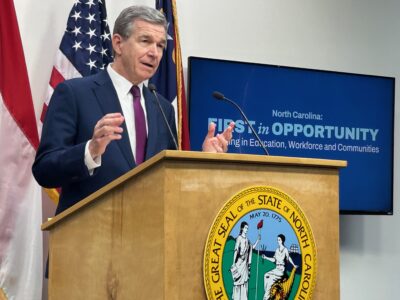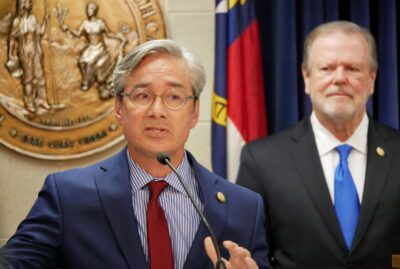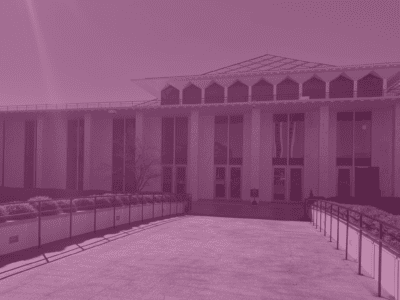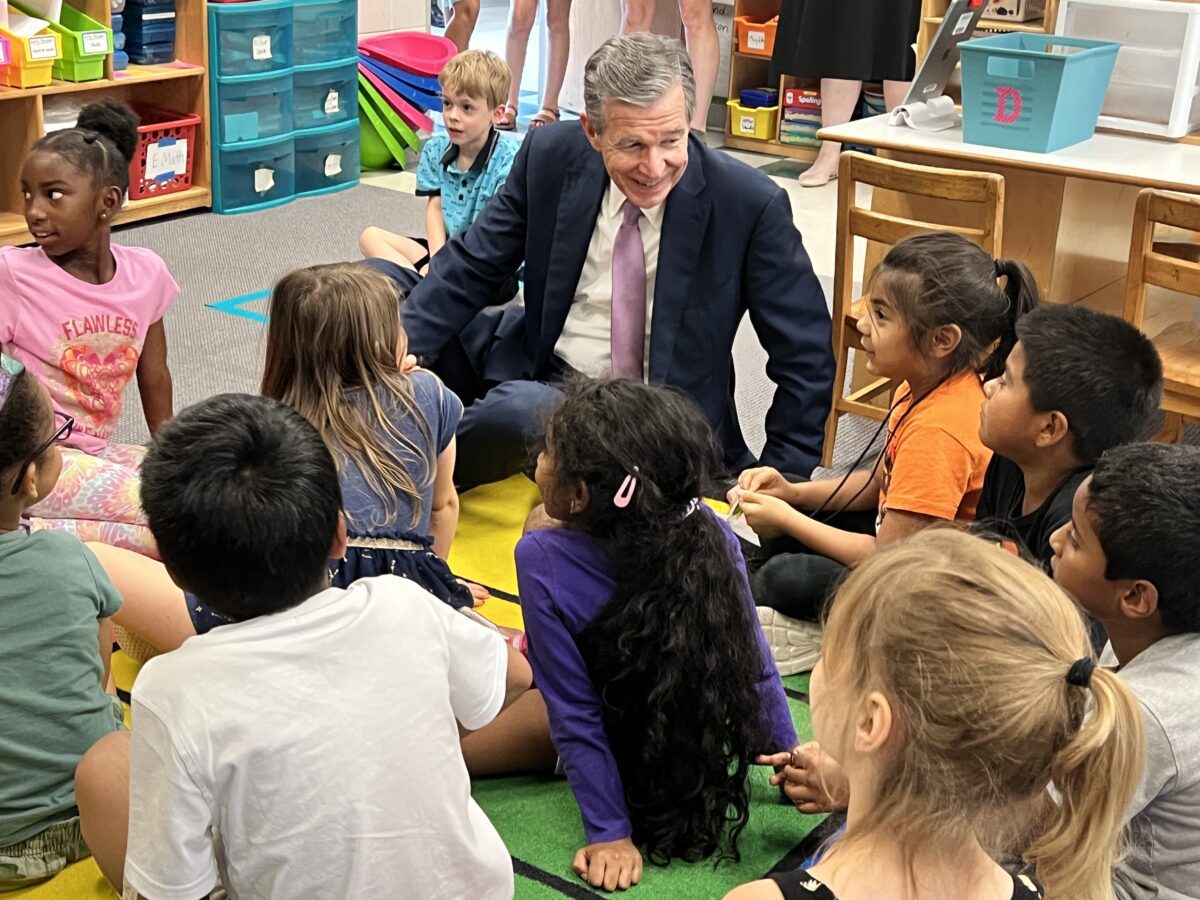

|
|
Gov. Roy Cooper visited a magnet elementary school in Raleigh on Tuesday to launch his Protect Public Schools tour. The visit came one day after the governor declared a state of emergency for public schools amid what he called an effort by Republican legislators to “choke the life out of public education.”
Cooper lifted up Washington Magnet Elementary as an example of the possibilities that exist when a public school is adequately funded. Earlier this year, Magnet Schools of America named Washington the top elementary school in the nation. The 100-year old school was originally the first public high school for African Americans in Raleigh.
“We pride ourselves on the opportunities that we provide for all students,” said Principal Catie Burnette, a former North Carolina Teaching Fellow. “The learning opportunities connected to our core curriculum and our robust electives program, I believe, is a major part of why our school was recently recognized as a top magnet school of excellence and the top magnet elementary school in the nation.”
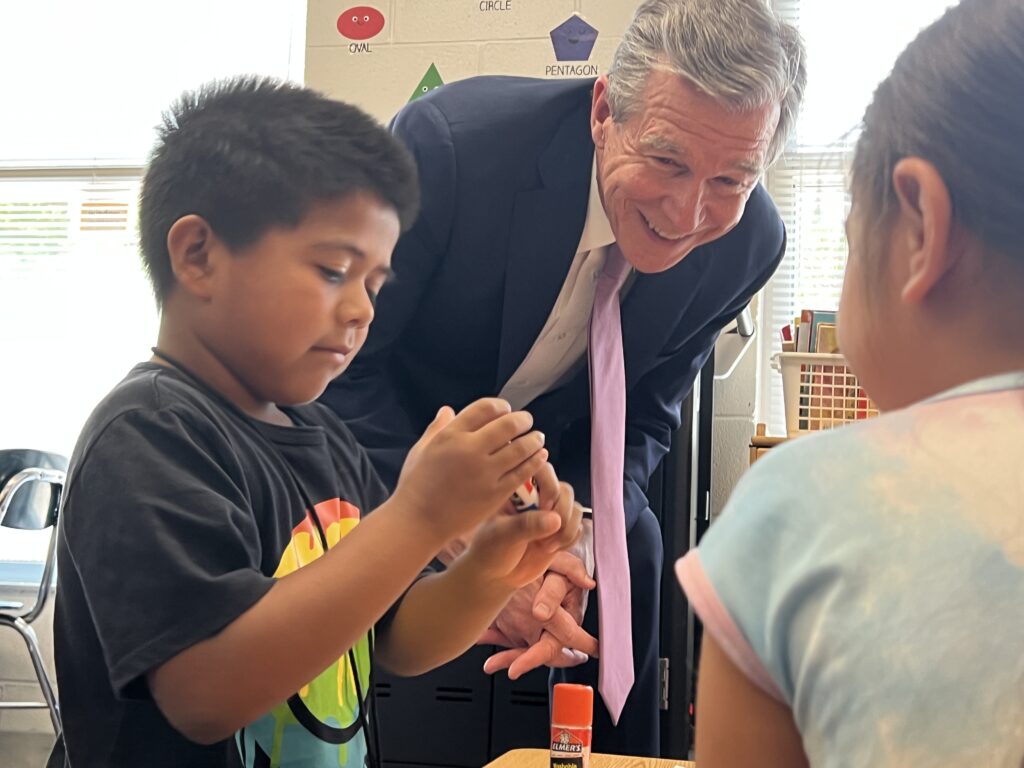

A state of emergency
Cooper declared the state of emergency and launched his tour just days after the Senate released its proposed budget for the biennium. The House released its proposal in March.
Republican leaders in both chambers advanced an expansion of private school vouchers. By 2031-32, the state would be spending more than $500 million in recurring funds for the program.
Cooper noted that the funds allocated, even in the early years of the expansion, outpace the amount allocated to raising teacher pay. He called the Senate proposal for salary increases, which for some veteran teachers would mean about a $20 per month raise, a “slap in the face” and said the Senate “deliberately” put teachers at the very bottom for pay among state employees.
Rep. Julie von Haefen, D-Wake, who attended the event at Washington, has noted that when appropriations for expanding vouchers top out in 2031, the General Assembly will be committing about the same amount of money as it has resisted committing to public schools under the Leandro case.
Last month, a North Carolina superior court held that the General Assembly has underfunded K-12 education by about $510 million for years two and three of the Leandro Plan.
Republican legislators are also advancing, or have already passed, bills that would:
- Regulate how history and racism are taught in schools.
- Create a commission, appointed mainly by lawmakers, to recommend the standards that would be taught in each K-12 subject.
- Make State Board of Education membership an elected position, and separately create a charter board appointed by the General Assembly to approve new charter schools.
“All of these attacks on public education are happening at once,” Cooper said. “And it is time for a state of emergency to let people know, because a lot of this is going to happen behind closed doors over the next few weeks. There won’t be public debates about this, it’s just going to happen. In order for us to have an effect, the constituents, who these legislators represent, need to be told about what’s happening, need to be informed.”
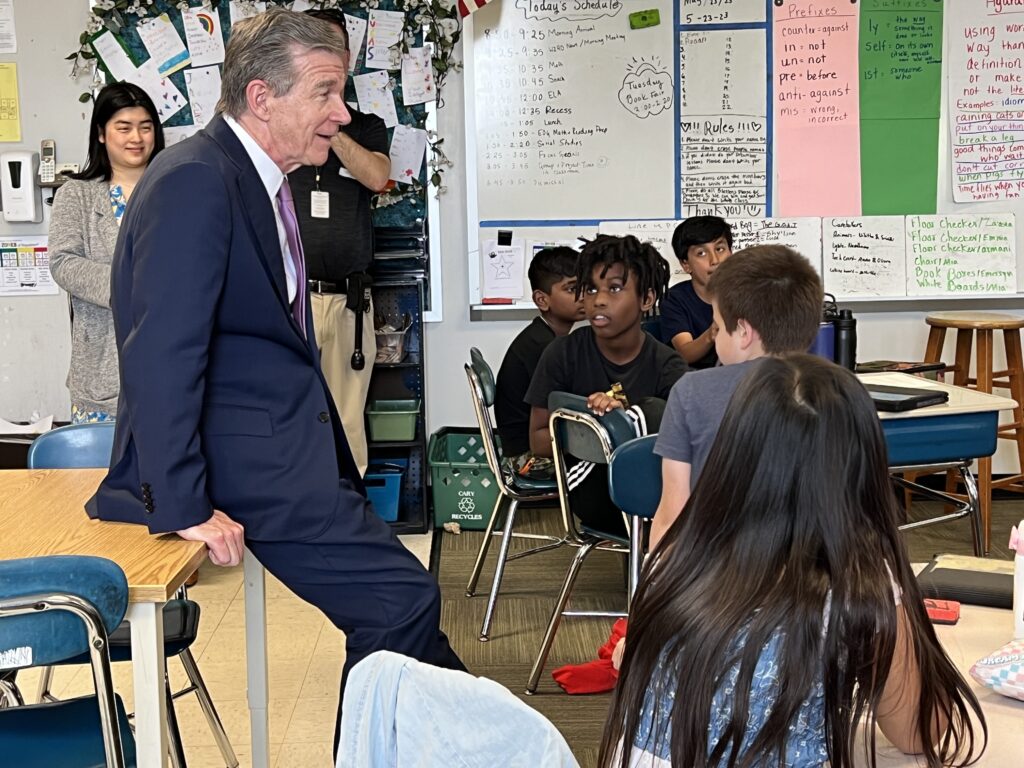

Experiencing what public schools offer
During the visit, Cooper talked about his school teacher mom, one of his favorite topics when visiting schools. As he spoke, Wake County Public Schools System Superintendent Catty Moore smiled and caught Cooper’s eye.
“She was my mentor teacher,” Moore said. “A legend in her own right.”
Later, Moore talked about why she’s such a believer in public schools.
“We know that great things happen when schools focus on developing the whole child to create well-rounded, empathetic, and successful students,” she said. “And we know that that is possible with a high-qualified and excellent staff and support staff – because a school doesn’t need to have the word ‘magnet’ in it its name to share those values and to work towards those ends.”
Cooper chatted with student ambassadors about their favorite classes, one of his favorite teachers, and what they liked best about school. He visited an art class, where students flung their hands in the air when he asked if it was anyone’s favorite subject. The teacher talked about struggles maintaining supplies a few years ago when the budget got lean, and what a difference it’s made when the district provided needed dollars.
Cooper sat in on a math class, audibly gasping when one student solved a math problem quicker than him. In one classroom, he walked in on the class’s election day – where students voted to elect a governor, legislators, and judges.
“I want to thank your teachers,” he told that group of students. “They do such an amazing, amazing job. And one of the reasons I’m here is because they need more support. We need to invest more in our schools.”
Looking for common ground
Cooper said he and the Republican-controlled legislature have found common ground in the past. He lifted up science of reading legislation and funding to address unfinished learning after COVID-19 as examples.
He sounded surprised that common ground wasn’t found in the legislative budget proposals around early childhood care and education, a need that he noted is emphasized in the Leandro Plan.
“It’s just stunning what’s gonna happen to public education if these things come to pass,” he said, “and that’s why it’s so important for us to end up in a different place by the time they roll that budget out.”



